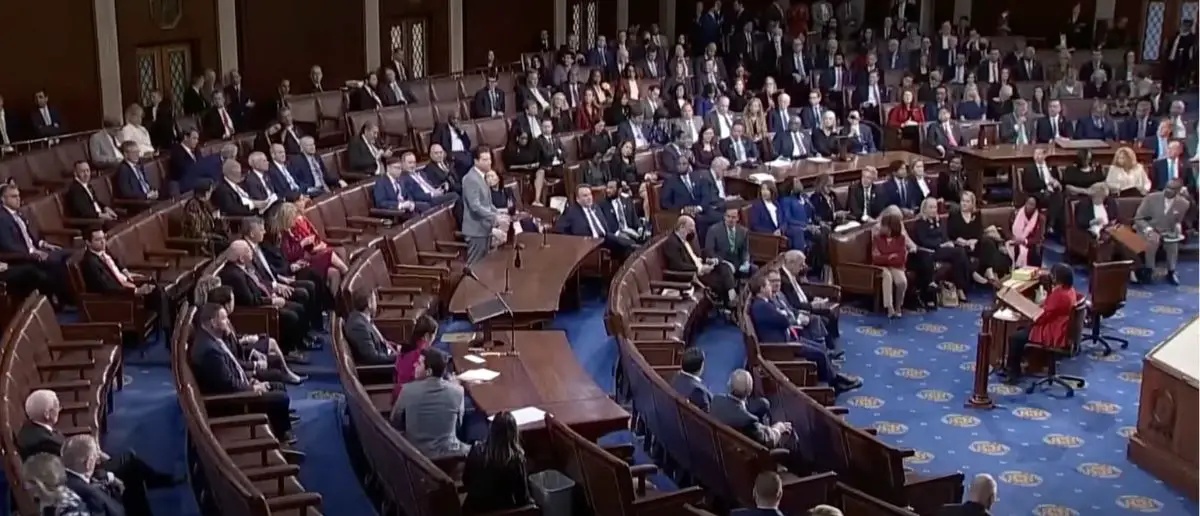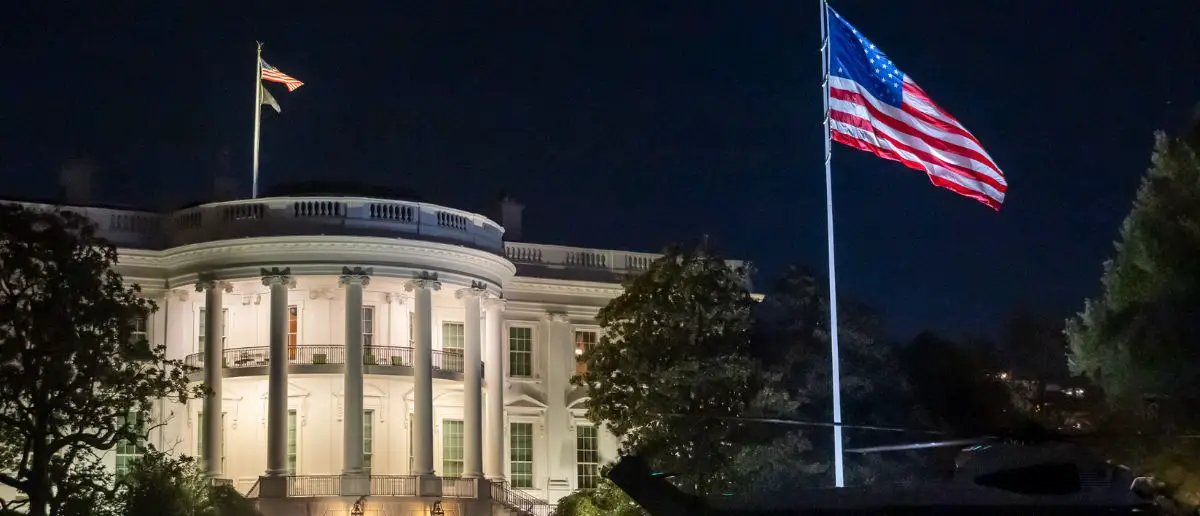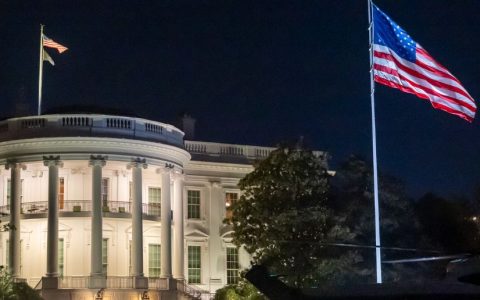
The courts have been running wild. And the U.S. Supreme Court is silent.
That’s why Congress has threatened a U.S. Federal Judge with an ultimatum way worse than impeachment.
Trump Ally Unleashes Constitutional Cannon to Oust Rogue Judge Blocking Deportations
In a fiery move to back President Donald Trump’s tough-on-crime agenda, an Arizona congressman dropped a legislative bombshell on Monday aimed at kicking a federal judge off the bench. Rep. Andy Biggs, a steadfast Republican from the Grand Canyon State, introduced a resolution targeting U.S. District Judge James Boasberg, who’s been a thorn in the Trump administration’s side by halting deportations of Venezuelan gang members. This isn’t your typical impeachment play—it’s a cunning new tactic that sidesteps the Senate’s pesky two-thirds vote hurdle.
Biggs’ resolution accuses Boasberg of “failing to maintain the standard of good behavior required of judges” under Article III, Section 1 of the Constitution. The congressman’s plan hinges on a lesser-known clause that he says gives Congress the muscle to boot judges who step out of line, no impeachment required. It’s a bold jab at a judiciary that Trump supporters see as increasingly hostile to the administration’s goals.
“Most Americans believe that there is lifetime tenure for a federal judge. That unless impeached, a federal judge can serve until death,” Biggs said in an interview. “But lifetime tenure is not guaranteed, nor mentioned, in the Constitution. Article III, Section 1 permits a federal judge to serve only ‘during good behavior.’” For Biggs, this isn’t just legal nitpicking—it’s a lifeline to rein in judges who defy the will of a duly elected president.
The target of Biggs’ wrath, Judge Boasberg, sits on the federal bench in Washington, D.C. He threw a wrench into Trump’s deportation machine by blocking the use of the Alien Enemies Act of 1798 to ship out illegal immigrants tied to the notorious Venezuelan gang Tren de Aragua. Boasberg didn’t stop there—he ordered government planes, already airborne and bound for El Salvador with the alleged gangsters, to turn around and bring them back to U.S. soil. To Trump loyalists, it’s a glaring example of judicial meddling in national security.
Boasberg isn’t alone in crossing swords with the Trump administration. Federal judges across the country have slapped down policies from firing bureaucrats to scrapping agencies and even challenging birthright citizenship. Biggs sees a pattern: activist judges stretching their authority beyond their districts to thwart a president elected to shake up the system. His resolution is a warning shot—Congress, not the courts, should have the final say.
“[W]hat about a judge who has a conflict of interest and refuses to recuse himself from the case with which he has a conflict? Or, what if he has repeatedly supported publicly a political figure and vigorously denounced, not just on policy grounds, but on more virulent grounds, his political opponent?” Biggs asked pointedly. He’s painting a picture of a judiciary rotten with bias, where personal vendettas trump the law.
Congress must put a stop to rogue judges attempting to legislate for the entire nation. pic.twitter.com/e8I4vm4HqY
— Rep Andy Biggs (@RepAndyBiggsAZ) April 1, 2025
“Then a case involving the political adversary comes before him, and he insists on hearing the matter instead of recusing?” Biggs pressed. “You see, impeachment doesn’t work in these and other similar instances. The jurisdiction limitation against nationwide injunctions also doesn’t prevent an unjust, biased determination.” For Biggs, the old tools aren’t cutting it—firing a judge outright might be the only way to clean house.
“Maybe, however, firing such a judge could be the answer. It would certainly be specific deterrence that would prevent that type of misconduct from such a judge. And it would provide general deterrence in that all other federal judges would think more about applying the law to the case rather than attempting to twist the law so that the judge can attack a political adversary,” Biggs argued. It’s a call to arms for a judiciary that respects Trump’s mandate, not one that undermines it.
The resolution zeroes in on Boasberg’s deportation ruling, claiming it stomps all over the president’s “constitutional prerogatives.” “The Constitution grants the President broad and expansive powers over the conduct of foreign policy and to ensure national security against foreign threats,” it declares. Biggs contends that Boasberg’s order to bring back Tren de Aragua members—a group some call a foreign terrorist outfit—was a power grab dressed up as justice.
Where Boasberg crossed the line, the resolution says, is when he “knowingly interfered with the President’s execution of foreign policy by ordering the return of members of a designated foreign terrorist organization to the United States.” Biggs isn’t mincing words: he sees this as a partisan stunt to kneecap Trump’s agenda for political points, not a principled stand on the law.
This isn’t a lone crusade. Biggs’ move dovetails with other GOP efforts to tame the judiciary. Rep. Jim Jordan, the bulldog leading the House Judiciary Committee, has his own three-pronged attack: laws to stop lone judges from issuing nationwide injunctions, budget cuts to starve judicial overreach, and hearings to expose bad actors. Senate Judiciary Chairman Chuck Grassley joined the fray Monday with a bill to chain federal judges’ rulings to their own backyards, not the whole nation.
House Republicans have already filed impeachment articles against Boasberg and at least two other judges blocking Trump’s orders. But Biggs’ strategy is slicker—it dodges the Senate’s 60-vote threshold for laws or two-thirds for impeachment. “The Senate also confirms judicial nominations by a simple majority vote of 51. The finding that a judge has violated terms of ‘good behavior’ should also be affirmed by a simple majority of votes in the Senate and House,” he explained. It’s a numbers game Trump’s team could win.
Legal scholars might clutch their pearls, insisting impeachment is the only way to sack a federal judge. But Biggs isn’t buying the orthodoxy—some experts as far back as 2006 have argued the Constitution’s “good behavior” clause leaves wiggle room. If Biggs can sell this to his colleagues, he says, “Article III, Section 1 will allow us to collectively say, ‘You’re fired’ to those judges who have forfeited their tenure on the bench by abusing their power.” For Trump’s allies, it’s a juicy chance to reclaim control from a judiciary gone wild.
📰In the latest indication of success from President Trump’s unprecedented effort to secure the homeland, the @LATimes writes that “migrant crossings have slowed to near a halt” along the California-Mexico border following years of unchecked illegal immigration. pic.twitter.com/zOYk1dlTOo
— The White House (@WhiteHouse) March 31, 2025
Stay tuned to the DC Daily Journal.





